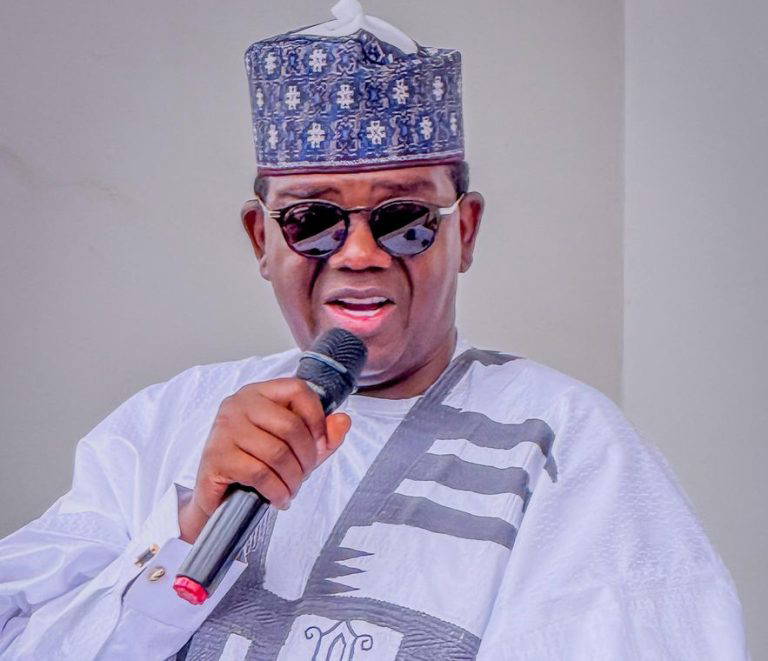A protracted legal dispute involving the Ogun Guangdong Free Trade Zone (OGFTZ) has escalated into an international conflict, entangling the Nigerian government in a battle with Chinese corporate interests. At the center of this dispute are two Chinese companies, Zhongfu International Investment FXE and China Africa Investment FXE, both vying for control over the management rights of the OGFTZ. The dispute has not only disrupted economic activities in the zone but also led to the seizure of Nigerian presidential jets in Paris, a move that has strained diplomatic relations and raised concerns about the protection of Nigeria’s sovereign assets.
The Ogun Guangdong Free Trade Zone was established in 2007 under the administration of Senator Gbenga Daniel, then Governor of Ogun State. The zone was envisioned as a hub for industrial and commercial activities, attracting foreign investment and boosting economic growth in the region. The original agreement involved a partnership between the Ogun State Government and Chinese investors, with China Africa Investment FXE, representing Guangdong Province, being the primary investor and manager of the zone.
However, the management of the OGFTZ became a contentious issue after the expiration of Daniel’s tenure. When Senator Ibikunle Amosun assumed office as Governor of Ogun State in 2011, his administration was confronted with conflicting claims from two Chinese companies—Zhongfu International Investment FXE and China Africa Investment FXE—each asserting its right to manage the zone. This rivalry soon escalated into a fierce business dispute, disrupting operations within the zone and creating tension between the Ogun State Government and the Chinese companies.
In response to the conflict, Amosun’s administration appointed Zhongfu as the interim zone manager in March 2012, pending further evaluation of the situation. Zhongfu had presented itself as a concerned stakeholder, providing damaging information against China Africa Investment FXE and claiming that it was the legitimate representative of Guangdong Province. However, Amosun later revealed that this information was a “tissue of lies,” aimed at undermining China Africa Investment FXE and covertly taking over the state-owned assets and management rights of its rival.
By 2016, after extensive consultations with the relevant organs of government, including the State Security Services (DSS) and the Nigeria Export Processing Zones Authority (NEPZA), the Ogun State Government decided to terminate Zhongfu’s management rights. This decision was reinforced by a diplomatic note from the Chinese government, which clarified that China Africa Investment FXE was the rightful investor and manager of the OGFTZ. As a result, Zhongfu was served a formal termination notice on May 27, 2016.
Unwilling to accept the termination of its management rights, Zhongfu International Investment FXE resorted to legal action, filing lawsuits in various Nigerian courts to assert its claims. However, these efforts proved futile, as the courts consistently ruled in favor of the Ogun State Government and China Africa Investment FXE. The final judgment in one notable case, Suit No AB/04/2017: Zenith Global Merchant International Investment Ltd Vs Zhongfu International Investment FXE, explicitly restrained any reference to arbitration, stating that the matter was a trade dispute between two Chinese entities with little or no connection to either Ogun State or the federal government.

Despite these setbacks, Zhongfu persisted in its efforts to reclaim control over the OGFTZ. The company took its grievances to higher authorities in Nigeria, including the Presidency, the Minister of Trade & Investment, the Attorney General, and the National Assembly. Yet, these petitions also failed to sway the government’s position.
Frustrated by the lack of progress in Nigerian courts, Zhongfu sought arbitration at an international tribunal, which eventually awarded the company approximately $74.5 million in compensation. However, the Ogun State Government disputed the tribunal’s decision and refused to honor the award, arguing that the dispute was fundamentally a conflict between two Chinese companies and that Nigeria should not be held liable.
In a dramatic turn of events, Zhongfu worsened the conflict by seizing three Nigerian presidential jets that were undergoing routine maintenance in Paris. The seizure, executed under ex parte orders issued by a French court, shocked the Nigerian government and the public, as it involved national assets that are symbols of Nigeria’s sovereignty. Although one of the jets, an Airbus A380 acquired to replace the former Air Force One, was later released, the incident highlighted the severe implications of the ongoing dispute.
The seizure of the jets prompted immediate reactions from key stakeholders, including former Governor Amosun and his predecessor, Senator Gbenga Daniel. In a statement issued shortly after the seizure, Amosun vehemently defended the actions taken by his administration, asserting that Zhongfu was an “imposter” with no legal standing to appropriate Nigerian assets. He stressed that the Chinese government had disowned Zhongfu, affirming that China Africa Investment FXE was the rightful manager of the OGFTZ.
Amosun also denied allegations that his administration had used police or security agents to harass or intimidate Zhongfu’s staff. He attributed any such incidents to internal conflicts between the rival Chinese companies, emphasizing that his government had acted within the bounds of the law and in the best interests of Ogun State and Nigeria.
Furthermore, Amosun expressed his readiness to cooperate with the Nigerian authorities to ensure that Zhongfu, or any other entity, does not succeed in scamming Nigeria. Drawing a parallel to the infamous P&ID case, where Nigeria was embroiled in a legal battle over a fraudulent contract, Amosun urged the government to adopt a similar firm stance in dealing with Zhongfu. He categorically stated that there was no need for any negotiation or re-negotiation of the original 2007 agreement, which remained valid throughout his tenure.
Amosun’s predecessor, Senator Gbenga Daniel, also weighed in on the matter, offering to provide relevant documents that could assist the Nigerian government in navigating the legal complexities of the dispute. In a statement, Daniel emphasized that the issue in contention was not the terms of the original agreement for the establishment of the OGFTZ but rather the termination of a management contract. He expressed his willingness to work with the government to find a diplomatic solution to the issue, while cautioning against discussing the matter in the media, as it could compromise Nigeria’s position in ongoing legal proceedings.

The ongoing dispute over the Ogun Guangdong Free Trade Zone has significant implications for Nigeria, both economically and diplomatically. The zone, once seen as a beacon of economic development, has been marred by the rivalry between the two Chinese companies, which has stalled progress and created a hostile business environment. The seizure of the presidential jets in Paris has further complicated matters, putting Nigeria in a precarious position on the international stage.
The conflict has also underscored the challenges faced by developing countries like Nigeria in managing foreign investments and navigating complex legal disputes with powerful international corporations. The case highlights the importance of due diligence, robust legal frameworks, and the need for governments to protect their sovereign assets from being entangled in private business disputes.
Moreover, the situation raises questions about the role of foreign investors in Nigeria’s economic development. While foreign investment is crucial for growth, it must be balanced with the need to safeguard national interests and ensure that investments are aligned with the country’s long-term goals. The OGFTZ dispute serves as a cautionary tale for other states and regions in Nigeria, reminding them of the potential pitfalls of entering into agreements with foreign entities without adequate safeguards and oversight.
SOURCES
- https://www.thecable.ng/gbenga-daniel-clarifies-role-in-ogun-ftz-dispute-says-hes-ready-to-help-with-resolution/amp/
- https://www.thisdaylive.com/index.php/2024/08/18/amosun-chinese-firm-dispute-is-between-two-chinese-companies-like-pid-scam/
- https://www.google.com/amp/s/punchng.com/ogun-ftz-dispute-i-wont-allow-chinese-firm-scam-nigeria-amosun/%3famp




